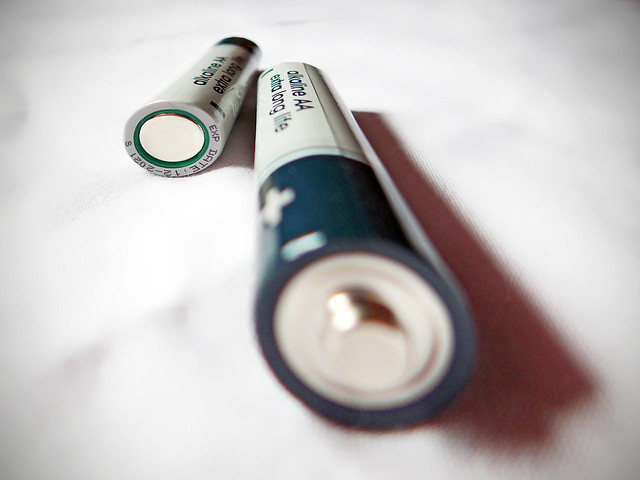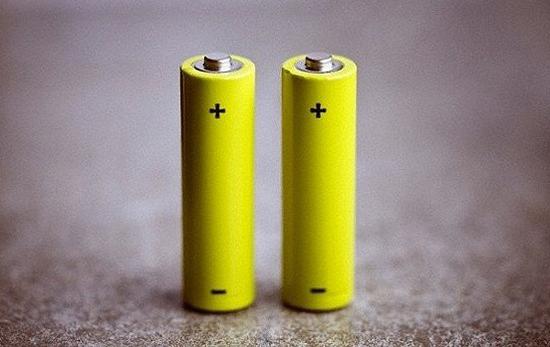Do Cell Phones Use Lithium Batteries-Energy Content And Types
Feb 27, 2020 Pageview:1681
Well, there is no denial in the fact that today the number of mobile devices is more than the number of people on the earth. Every other person around us is using their mobile phone, or they are indulged in gathering more information about the latest technology update of mobile devices. The industry of mobile devices has witnessed tremendous growth in recent years.
In the initial phase of the year 1990, a mobile phone use to be heavy and expensive, and today when you look around, every other model of mobile is sleek and weightless. Despite the advancements in mobile technology, one major component of the mobile phone was lagging behind, which is its battery. The battle of improving the battery was prominent before the use of lithium-ion batteries.
What cell phones use lithium batteries?
No one can deny the fact that they look for the battery specification when they think of purchasing a new mobile phone, as the battery is the main element of it. Today, tablets and mobile devices come with different kinds of batteries. The quality of the battery conceivably decides two things; that is for how much time the device can be used, which is basically how much energy it can store.
When it comes to the battery of mobile devices, there are two major requirements that should be met i.e., high levels of specific power and high levels of specific energy. The specific energy denotes the capacity of energy storage while the level of specific power refers to the ability to deliver current.
The lithium-ion battery is not a new-age battery, but they are in existence for a very long time now. In the year 1990, the lithium-ion batteries were not suitable for carrying high loads as they were fragile. But today, the batteries that are used in mobile devices are much more efficient and deliver long-lasting performance.
It is true that in most modern mobile phones, you will find the lithium-ion battery, which contains a set of electrodes and electrolyte in between them. Now the material of electrodes can differ from each other. Since lithium is said to be reactive in nature, it may catch up in the air, therefore in batteries, the chemistry of lithium cobalt oxide is used, which confirms the safety of the battery.
What is lithium battery energy content on a cell phone?
The lithium-ion battery is able to store more energy in a small space; that is why most of the mobile devices use this battery. The energy is measured in terms of specific energy density, and in the lithium-ion battery, it ranges between 150 watt-hours per kilogram.
On the other hand, the nickel-metal hydride battery, the specific energy density amounts to 100 watt-hours per kilogram. A lithium-ion battery that uses lithium manganese oxide possesses an energy density of 150 watt-hours per kilogram.
For the batteries to deliver high power output, it is required to change the structure of the battery. The advance structure will increase the surface area that will allow more ions of lithium to flow at a time. Certainly, there is scope for improvement when it comes to the energy content of lithium batteries.
Which type of battery is best for cell phones?
It is true that battery is considered as the blood of mobile devices; these batteries have one or more than one cell, which is a working chemical unit present in a battery. As mentioned earlier, there are three essential components in a battery: a positive electrode, a negative electrode, and electrolyte which separate the two electrodes. The electrolyte can be solid or liquid.
Generally, there are four kinds of rechargeable batteries that are used in mobile phones. These include the following:
Nickel-Cadmium (NiCd) Batteries
Nickel Metal Hydride (NiMH) Batteries
Lithium-Ion Batteries
Lithium Polymer (Li-Poly) Batteries
Well, in order to determine which battery is best for cell phones to let us discuss each one of them in detail. Comparison becomes easy when we look at the advantages and disadvantages of a particular thing; therefore, let’s explore them too.
1. Nickel-cadmium (NiCd) batteries
These batteries are based on old technology that used to deliver low levels of energy density. The chemical formula for this battery is not eco-friendly. The dumping of cadmium rich waste material is an ongoing problem. If you are looking for one of the cheapest variety, then you can consider this battery. The cost of mobile devices reduces due to the affordability of Nickel-cadmium (NiCd) batteries.
Advantages
The charge and discharge cycles of NiCd battery are quite high as they provide over 1000 discharge/charge cycles.
NiCd batteries can be recharged at low temperatures
The shelf life of these batteries is relatively long
Disadvantages
As compared to the new technology, the NiCd batteries offer low energy density level
The battery contains toxic metals due to which they are unfit for the environment
It requires recharging after storage
2. Nickel metal hydride (NiMH) batteries
Since this battery does not contain cadmium, it can be considered as superior from the NiCd battery. It is an environment-friendly battery as it not made up of non-toxic metals.
Advantages
The batteries are recyclable in nature
The transportation conditions are not rigid
Increased potential of energy density
Disadvantages
The self-discharge rate is high
This is a high maintenance battery
It generates heat while charging
3. Lithium-ion batteries
Unquestionably, this is the most famous technology when it comes to the battery of mobile devices. They are light in weight and have a longer lifespan.
Advantages
It offers high levels of energy density
As compared to other technologies, it offers a low self-discharge rate
Since no regular discharge is required, these are low maintenance batteries
Disadvantages
The cost of manufacturing is high
The battery starts aging if they are not put to use
There are stringent regulations for the transport of these batteries
4. Lithium polymer (Li-Poly) batteries
This is one of the advanced technologies of mobile batteries. The battery capacity is relatively high in Li-Poly batteries.
Advantages
The batteries are ultra-lightweight in nature
It is resistant to overheat and overcharging
There is high flexibility in the size of the battery
Disadvantages
It offers low levels of energy density
The charge and discharge cycles are relatively low
The price involved in manufacturing is high
Some Final Words
Well, that is all about the batteries that are used in a mobile phone. You can consider the above-mentioned advantages and disadvantages to determine the best battery according to your use.
- Prev Article: Lithium Iron Phosphate Battery Price-Cost and Lasting
- Next Article: Li-Ion Battery Price Trend-Price Analysis
Leave Message
Hottest Categories
-
Hottest Industry News
-
Latest Industry News












